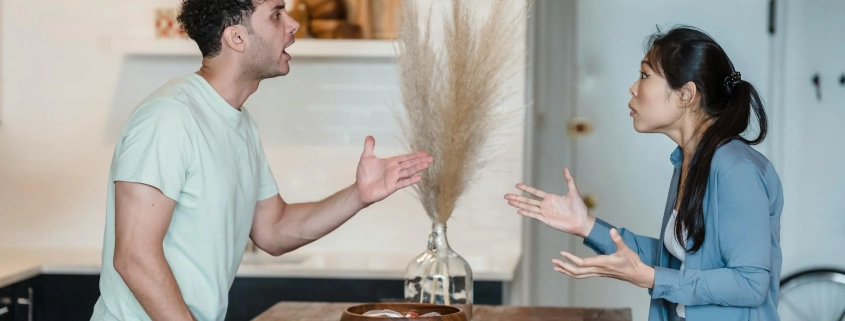How do you recognise chronic patterns in relationships?
The intricacies of human relationships are often coloured by repetitive dynamics that can shape our interactions in profound, yet sometimes, invisible ways. At Anne Evans Counselling in Byron Shire, there is a keen focus on identifying and understanding these chronic patterns, as they hold the key to unlocking healthier and more fulfilling connections. But how does one begin to recognise these patterns that so often fly under the radar of our conscious awareness?
The Cycle of Chronic Patterns
Chronic patterns in relationships are repetitive behaviours or emotional responses that emerge through our interactions with others. They are the familiar dances we do — the steps we know by heart, even when they lead us down well-trodden paths that might not serve our current situation or our wellbeing.
Signs of Chronic Patterns
- Similar Issues Arising: A clear sign of a chronic pattern is when similar issues arise across different relationships or stages of life. It might be a tendency to end up in relationships that lack emotional availability or a habit of taking on the peacemaker role, regardless of personal cost.
- Consistent Responses to Conflict: Pay attention to how you handle conflict. Do you always shut down and withdraw, or do you find yourself in the role of the aggressor, even when you know it’s not the most productive approach?
- Repeated Feelings: Despite changing partners or friends, if you frequently find yourself feeling the same way — undervalued, misunderstood, or perhaps overwhelmed — it might indicate a pattern.
- Predictable Outcomes: When relationships frequently end in a similar fashion, or when you feel stuck in a loop, it’s time to consider that a chronic pattern might be at play.
How to Recognise Chronic Patterns
- Reflect on Your Relationship History: Take an inventory of past relationships and note down any recurring themes or feelings. Look for what feels ‘familiar’ in these experiences.
- Identify Your Role in Interactions: Ask yourself what role you tend to play in relationships. Are you often the caregiver, the fixer, or the one who sacrifices your needs?
- Consider Your Origins: Many chronic patterns have roots in early life experiences. Reflect on your childhood and family dynamics to identify any early patterns that may have carried over into your adult relationships.
- Listen to Feedback: Sometimes, friends, family, or even ex-partners can offer insights into our patterns. If you’re hearing similar observations from different sources, there may be a pattern worth exploring.
- Mindfulness and Self-Observation: Practice being present and mindful during interactions. This can help you catch yourself when you are slipping into automatic responses or behaviours.
- Journaling: Keeping a journal can be a valuable tool. Writing down your feelings and experiences can highlight patterns that you might not otherwise notice.
- Therapy: A professional like Anne Evans can provide a non-judgmental space and expert guidance to help you uncover and understand your chronic patterns. Therapy can be particularly helpful because it offers an outside perspective combined with therapeutic insights.
Breaking the Cycle
Recognising chronic patterns is the first step towards changing them. The next step is to take conscious actions to break the cycle. This might involve setting new boundaries, developing healthier communication skills, or working on your self-esteem.
Changing the Dance
It’s important to remember that in any relational dance, it takes two to tango. When you change your steps, the whole dance inevitably changes. This means that as you work on altering your patterns, your relationships will begin to shift in response.
Embracing New Patterns
Creating new, healthier patterns is a process that takes time and patience. It involves consistently choosing different actions and responses, reinforcing them until they become your new ‘normal’.
At Anne Evans Counselling in Byron Shire, the belief is that within each pattern lies an opportunity for growth and healing. By recognising the chronic patterns in our relationships, we empower ourselves to create change. The patterns we unravel and the new ones we weave can lead us towards more authentic and rewarding connections. Remember, the tapestry of our relationships is never fixed; with awareness and effort, we can always add new threads, colours, and textures that transform the overall picture.






Leave a Reply
Want to join the discussion?Feel free to contribute!